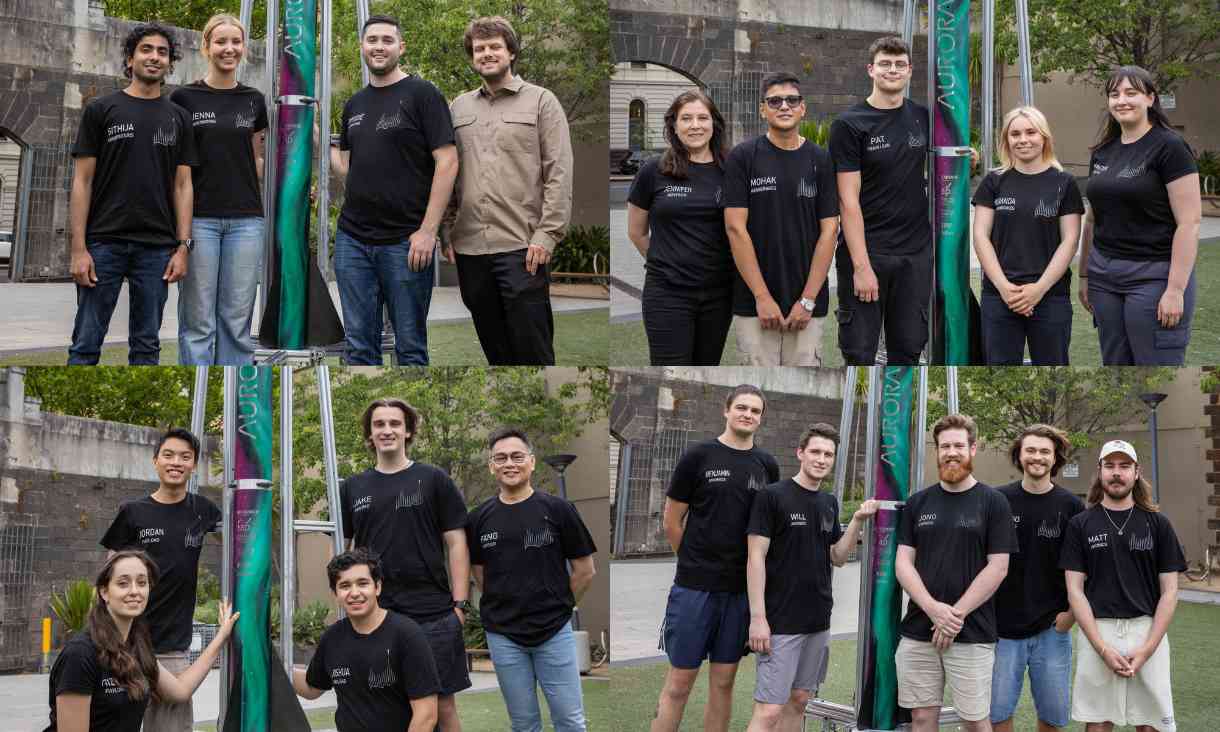RMIT University recently held a special event to celebrate its 131st birthday, entitled Will Robots Eat our Jobs? The event featured Vice-Chancellor Martin Bean and a panel of experts discussing what the future of jobs might be in a world where delivery drones, hyperloops, virtual reality, driverless cars, 3D printed homes and space tourism may become the norm.
It was no surprise to me that the event was a packed house. While a brave new world beckons, many people find their excitement tempered by anxiety about the future, particularly as they try to come to grips with how technology is changing the world of work, not just for them but for their kids and grandkids.
A report published this year by the Foundation for Young Australians as part of its New Work Order research series found that 65 per cent of children in primary school today will work in jobs that don’t yet exist. That means we need to develop students who can to adapt and thrive in a world where change is constant, and who are equipped with the skills to win these jobs that we can’t yet even envision.
There’s also a clear gender issue, highlighted in the World Economic Forum report on the Industry Gender Gap: Women and Work in the Fourth Industrial Revolution, which notes that if the transformation of the labour market towards new and emerging roles in computer and tech fields continues to outpace the rate at which women are entering those STEM areas, women are at risk of losing out on tomorrow’s top job opportunities.
Knowing that governments and industries around the world are focused on meeting future work needs by building STEM skills, it is concerning that women tend to be under-represented in STEM education and training in most countries, including Australia (Marginson, et al, 2013).
At RMIT we firmly believe that universities must take the lead on upskilling and reskilling Australians for the modern, digital workplace and constantly reassess how we can deliver greater value to students and society.
As a place of learning, it’s incumbent on us – as it always has been – to deeply understand the world we are all adapting to, and to ensure we provide access to relevant education, new options for learning and quality paths for employment for generations to come.
It’s an exciting, challenging and infinitely rewarding space to be in, and we are continuing to flex and evolve. Our view is that the best way to stay ahead of the changing world of work is to innovate in collaboration with industry leaders.
As CEO of RMIT Online, one of my responsibilities is to seek out industry partners who can help us prepare our students for the future. I also look at how we can create flexible, targeted and industry-focused learning options today. It’s about balancing pace with a sharp eye for what’s next.
By doing this, we help open more doors for students and enable them to step out of RMIT into real jobs where these skills are in high demand.
In a world where change is constant, lifelong learning is a new reality. We now have so much freedom to design the way we want to work and live, that providing new options for students to gain new skills or top up outdated skills is increasingly important.
Many people are looking for targeted, industry-focused learning that can be immediately applied back in their workplace. It’s not always about getting a master’s degree; sometimes it’s just about sharpening a skill that an employee wants to apply next month or needs to take the next step in their career.
You don’t have to look far to find alarming statistics about some of the current skills shortages in Australia.
According to the 2018 Deloitte Access Economics Report, Australian universities produce fewer than 5,000 technology graduates per year and the IDC has projected that jobs created in the Salesforce ecosystem will continue to grow, reaching 79,000 in Australia by 2022.
Further, a recent study from the Australian Industry Group found that 75 per cent of organisations in Australia reported skills shortages when recruiting for jobs related to automation, big data and artificial intelligence (AI) in particular.
I often explain to students that it’s inside this skills gap that enormous opportunity lies waiting.
For example, the business value-add of blockchain is expected to grow to around US$176 billion ($244 billion) by 2025, according to Gartner, showcasing how quickly this technology has moved from its research and development phase to real-world market applications.
Similarly, global augmented reality (AR) spending is expected to hit US$60 billion ($83 billion) in 2020, while global autonomous vehicle market revenue is expected to grow at a rate of 39.6 per cent over 10 years to US$127 billion ($176 billion) by 2027.
With these projections in mind, and acknowledging that disruptive changes to business models will continue to have a profound impact on the employment landscape, what tomorrow’s employees need to future-proof their careers is co-created, industry-endorsed courses that address skills gaps among executives, professionals and developers.
Partners with disruptive industry leaders
In the past 12 months alone, RMIT has announced industry partnerships with Apple, Microsoft, Adobe, Amazon Web Services, Udacity, Credly, Accenture and Salesforce, as well as new learning pathways with the Massachusetts Institute of Technology (MIT).
The partnerships we have forged with highly regarded industry leaders cover a breadth of in-demand future skills, from app development, AI and digital assistants, to robotics, self-driving cars and blockchain, many with a microcredential attached.
Even where there is motivation to upskill employees and future-proof the business, many workplaces still struggle to find the resources or access the necessary training and education to do so. As an example, Accenture identified the need to train staff in blockchain technology, but local resources simply didn’t exist to close this skills gap. As a result, RMIT and Accenture collaborated to create Australia’s first dedicated blockchain short course – and it sold out within 48 hours.
RMIT continues to lead the way as an authority on blockchain through online and face-to-face learning options, available alongside the highly regarded Blockchain Innovation Hub led by Professor Jason Potts.
Through partnerships with disruptive industry leaders, we’ve demonstrated our commitment to deliver what our students need today and what we project they will need tomorrow.
These relationships also provide us with extraordinary insight and readiness to design the ‘what’s next’ ahead of the pack. In many ways, that’s our promise as a university, and we take it seriously.
Alongside industry-specific skills, ‘soft’ or transferrable skills are also in high demand, with Deloitte highlighting that 75 per cent of future jobs will require these so-called soft skills, like digital literacy, teamwork and the ability to think creatively.
But while there’s an onus on the individual to upskill, we believe that employers also have an opportunity to recognise the power of soft skills – personally, I’d call them strong skills – and prioritise helping their employees to achieve them.
It’s increasingly becoming a differentiator of success, with many of our partners honing their focus on upskilling employees in this area.
Deep connection with industry is part of RMIT’s DNA. Since we opened our doors 131 years ago, our point of difference has been a relentless focus on practical learning that readies our students for life and work in the real world.
What we’ve embarked on at RMIT is incredibly exciting, and I’m a passionate believer that it’s our combination of traditional and new ways of educating that continues to make us so relevant.
In a world full of unknowns and disruption, I know one thing for certain: there’s no disputing the evidence that we should all be future-proofing our careers. And that’s exactly what energises my focus every single day.
This opinion piece first appeared on Campus Review in December 2018.





.jpg)